Law firms embrace ‘change makers’

Roula Khalaf, Editor of the FT, selects her favourite stories in this weekly newsletter.
Several of the people on this list have won support from their law firms for instituting radical change, despite their lack of a law degree.
Even a practising lawyer can struggle to convince their business that it should change, especially if it is profitable.
These “change makers” say they have to find a balance between setting themselves apart through innovation groups or bringing in ideas from outside the law, and gaining trust by building relationships and empowering people across the firm.
Caroline Firstbrook, winner of an FT Innovative Lawyers change maker award, did just this, and gained backing for policies by demonstrating to partners how a more commercial mindset could yield immediate and long-term results.
Profiles compiled by RSGi researchers and FT editors. ‘Winner’ indicates the organisation won an FT Innovative Lawyers Europe 2021 award
Winner: Caroline Firstbrook
Chief operating officer, Clifford Chance
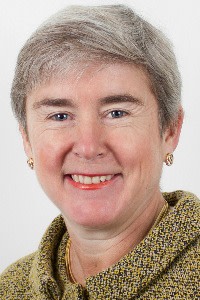
Originally an engineer and then a strategic consultant, Caroline Firstbrook joined Clifford Chance as its chief operating officer six years ago. She set an agenda for radical change and now leads the business professionals, or “non-lawyers”, at the global firm, including those in finance and human resources.
One of her first tasks was to strengthen the commercial discipline that she had seen in her previous workplaces, including Accenture, the business consultancy.
This was not an easy task: law partnerships are often more tolerant of idiosyncratic behaviour among fee earners. When Firstbrook showed Clifford Chance’s bosses that new measures such as recording billable work within 48 hours could save up to $65m a year, they were convinced. The firm has reported a 60 per cent increase in profitability since Firstbrook joined. Her next plan for billable hours is to get rid of them from legal services.
Ben Allgrove, partner, Baker McKenzie

Ben Allgrove, who leads Reinvent, the innovation arm of Baker McKenzie, has recently taken on the title of chief innovation officer.
He divides his time between legal practice, where he is an expert in digital media and technology, and driving technology adoption from contract review tools and ediscovery to more cutting edge projects.
One example is a collaboration with SparkBeyond, a specialist in using artificial intelligence to solve problems. Baker McKenzie employs this technology to predict the volume of mergers and acquisitions and help find new clients. So far, the pilot projects have been a success.
Mark Barron, partner, Taylor Wessing

Mark Barron has spent 20 years helping to provide the vision that has led to his firm being recognised as a leader in technology. He was the founding partner of its Silicon Valley office, winning clients and then making good use of what he learnt on his return to London: applying the innovative approach of a tech start-up to Taylor Wessing’s culture and operations.
Barron set up a team of 50 “innovation ambassadors” across the firm and introduced the ideas of design thinking. The team has implemented Closing Folders, a transaction management platform, and an app called Eureka, which is used to organise new ideas. Out of 50 such ideas generated in its first four months, eight have become projects.
Gerrit Beckhaus, partner, Freshfields Bruckhaus Deringer

Gerrit Beckhaus is founder of Freshfields’ associate innovation programme, which seconds associate lawyers to clients, and tasks them with finding better ways to deliver legal services.
He launched Freshfields Lab in 2019, which he now runs alongside associate Lukas Treichl. The firm’s innovation arm aims to develop tech-based solutions to client problems. Among more than 30 such solutions are a simulation tool that quantifies exposure in mass claims and a notification platform for data breaches. These solutions combine off-the-shelf products with the firm’s proprietary technology.
The team ensures the proprietary components are replicable and scaleable.
Eileen Burns, chief digital officer, Arthur Cox
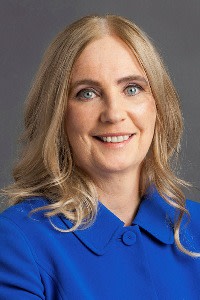
Previously a consultant at Accenture, Eileen Burns joined Arthur Cox in 2018. Since then, she has launched a consulting arm, implemented a new digital strategy and initiated a digital transformation programme at the firm.
So far, Arthur Cox has rolled out new ediscovery services as well as a platform that responds to data subject access requests. ACScribe, the firm’s document automation system, dramatically cuts the time that lawyers need to create drafts of contracts. Thanks to Burns’ new approach, the associate appraisal system now includes credit for time spent on approved digital projects as part of their billable hours targets.
Matthew Doughty, group chief operating officer, DWF
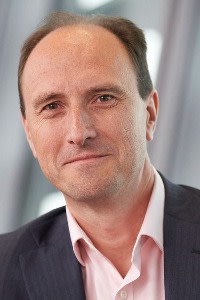
The Covid pandemic hit DWF hard in the final quarter of its financial year, to April 2020, which led to two profit warnings and a fall in the share price.
At this point, Sir Nigel Knowles took over as chief executive and Matthew Doughty was appointed as the firm’s first chief operating officer. Doughty developed a 100-day turnround plan, focusing on combining core legal advice with access to its Mindcrest and Connected Services offerings: all three are now offered to clients as a single service.
Doughty’s efforts contributed to an improvement in group revenues and a rising share price, as well as bringing new clients to the firm.
Karyn Harty, partner, McCann FitzGerald
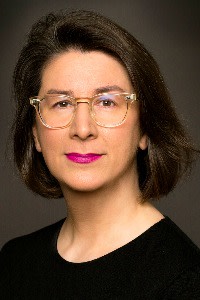
As a commercial disputes lawyer, Karyn Harty has carved out a niche in Ireland by encouraging greater use of technology in the law.
In 2015, she received approval from the Irish courts for the country’s first technology-assisted document review, when lawyers had to review 1.8m documents for a case (Irish Bank Resolution Corporation vs Quinn). As the first use of the technique in the Irish courts, it was controversial as many Irish firms had large, profitable manual review teams.
Harty founded and leads the legal-technology solutions division at McCann Fitzgerald. This involves implementing the firm’s digital strategy and supporting colleagues in finding new ways of delivering legal services.
Ben McGuire, managing director, Simmons & Simmons Solutions

Fifteen years in the British army gave Ben McGuire the ability to help people make changes. In his role as innovation chief at the firm over the past five years, he has convinced the partnership to invest in experimentation.
Solutions, the firm’s innovation group, includes ediscovery services, legal engineering (with Wavelength, the legal services business it recently acquired) and tech product development. McGuire worked with the firm’s legal practitioners to develop new revenue-generating services, including a tool that assesses trademark infringement risk, and another that helps cross-border data transfer. The group reported £18m turnover last year.
Chris Tart-Roberts, chief knowledge and innovation officer, Macfarlanes
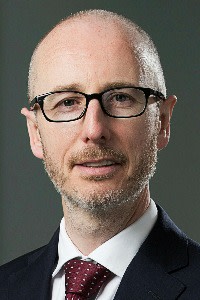
Chris Tart-Roberts established the firm’s legal technology team in 2016, developing it into a fee-earning practice area that deals directly with clients.
The 20-strong team comes from a variety of disciplines including data science, product development and legal practice.
Services offered by the team include Vantage, which uses AI and data analysis tools to ease the transition by financial institutions from London interbank offered rate (Libor), and Bastion, a suite of tools aimed at family offices that combines contract management, data analytics and project management.
Comments